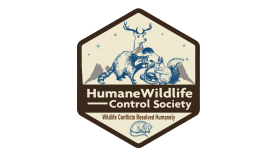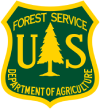Humane Wildlife Control in Little Rock, AR
The Humane Wildlife Control Society recommends non-invasive solutions to resolve human-wildlife conflicts. This includes:
Determining if the issue needs to be addressed at all
Opting for preventative measures first
Opting for wildlife exclusion as opposed to trapping
If trapping is the only way to solve the problem do so humanely
The Humane Wildlife Control Society screens candidates prior to recommendation. Our process requires any company we recommend to meet the following criteria:
Is properly licensed in Arkansas for wildlife control
Carries appropriate business licenses and insurance
Complies with all Arkansas laws and regulations for wildlife control
Adheres to the humane principles listed above.
In Little Rock, Arkansas we recommend Humane Wildlife Removal Little Rock for professional wildlife control services. This is a private company that charges for their services.
Contact Information:
Pest Animal Removal Little Rock
501-436-4995
If you have any wildlife issues that can be handled by the state government agency for free, the Arkansas Wildlife Commission can help.
State Contact Information: 501-223-6300
The State Department of Agriculture may also be able to address your wildlife problem for no charge.
USDA Contact Information: 501-225-1598
Humane Wildlife Control in Little Rock, Arkansas The Necessity of Humane Wildlife Control Our Approach to Ethical Wildlife Management Comprehensive Inspections: Identifying access points, nesting areas, and attractants. Raccoons nesting in attics and crawl spaces Protecting Wildlife and Communities For expert assistance with humane wildlife control in Little Rock, contact the Humane Wildlife Control Society today.
Little Rock, Arkansas, is home to a variety of wildlife species, including raccoons, squirrels, bats, and opossums. As urban development expands, interactions between humans and wildlife have become more frequent, leading to potential property damage and safety concerns. The Humane Wildlife Control Society is committed to addressing these challenges with ethical, effective, and long-term solutions.
Traditional trapping and relocation methods are not only inhumane but also ineffective. Relocated animals often struggle to survive in unfamiliar environments, and new wildlife quickly moves in to replace them. Instead of temporary fixes, a humane approach focuses on resolving the root causes of wildlife intrusions, ensuring long-lasting results while protecting both people and animals.
At the Humane Wildlife Control Society, we implement a science-based strategy that prioritizes both humane treatment and prevention. Our methods include:
Exclusion Techniques: Using professional-grade barriers and one-way exits to remove animals without harm.
Structural and Habitat Modifications: Addressing conditions that encourage wildlife entry, such as open vents, unsecured garbage, or overgrown landscaping.
Education and Prevention: Providing guidance to property owners on how to reduce the risk of future wildlife conflicts.
Common Wildlife Issues in Little Rock
Arkansas’ climate and wooded areas make Little Rock an active zone for wildlife. Some of the most frequent concerns include:
Squirrels chewing through siding and insulation
Bats roosting in homes and businesses
Opossums seeking shelter under porches or sheds
Snakes entering properties in search of food or shelter
Rather than resorting to lethal removal, our team ensures that each situation is handled with humane exclusion and deterrence strategies.
Wildlife plays an essential role in Arkansas’ ecosystems, and humane control methods are the only responsible way to manage conflicts. The Humane Wildlife Control Society provides professional, ethical solutions that prioritize safety, effectiveness, and sustainability.







